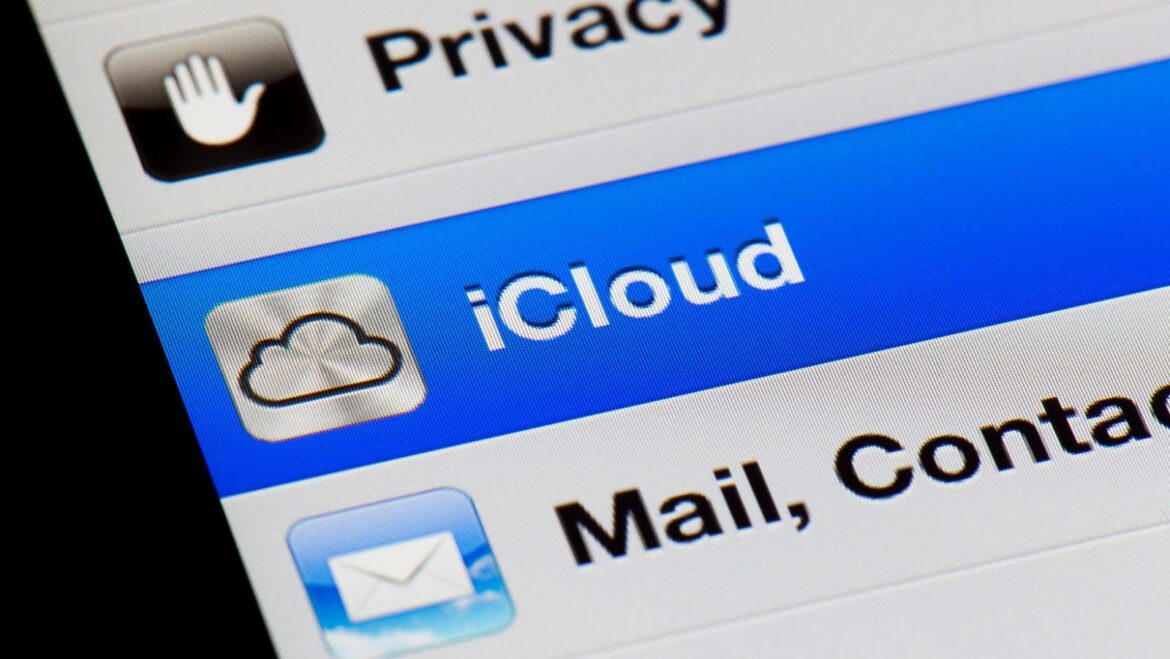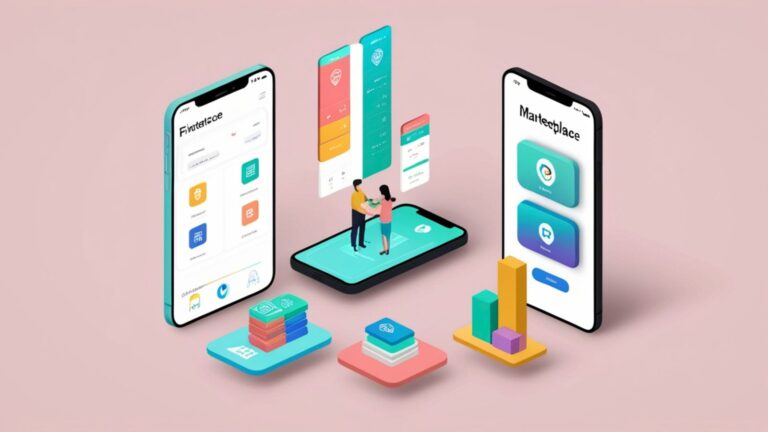Apple has made a big step towards better privacy for its users by announcing that its iCloud service will offer end-to-end encryption. Craig Federighi, Apple’s senior vice-president of software engineering, discussed the company’s plans to expand the encryption in a recent statement. In this article, we’ll discuss Federighi’s comments in more detail and how Apple plans to increase its security measures.
Background on iCloud
Apple offers storage solutions though iCloud to allow users to store their data in Apple’s secure, encrypted cloud-based platform. This provides users with the ease and convenience of accessing their documents, images, videos and more from multiple devices without physically storing them.
Recently, Apple has prioritised enhancing the security features of iCloud by expanding end-to-end encryption. In an interview with Craig Federighi, senior vice president of software engineering for Apple, he explained how this security measure better protects user data — reassuring users that only they can access the contents of their iCloud accounts.
Apple’s Craig Federighi Discusses Expanded iCloud End-to-End Encryption
At the Worldwide Developers Conference on June 3, 2019, Apple’s software chief Craig Federighi spoke about iCloud end-to-end encryption and how it reflects the company’s commitment to protect user data. During his keynote address at the event, Federighi discussed the various changes Apple has implemented in its latest iteration of iCloud security technologies.
Federighi emphasised that while it is important to protect user data from cyber threats, government demands should not be given precedence over user privacy. He announced several new features meant to make iCloud encryption more secure. These include using different keys for each file on a user’s account, rotating the keys regularly and giving access only to verified accounts that cannot be spoofed. That way no one other than a verified user can access files stored in iCloud storage.
In addition, Federighi revealed that Apple had been encrypting all synced files since AES256 encryption was introduced in 2014 and that this would now extend across all services including Mail and Photos and messages such as Facetime and iMessage. This pleased security experts who felt Apple was taking serious steps to ensure customer data privacy.
iCloud Security
Apple’s Senior Vice President of Software Engineering, Craig Federighi, recently spoke out in favour of expanded iCloud end-to-end encryption. According to Federighi, the company is emphasising user privacy, security, and convenience, and wants to take a proactive stance when it comes to safeguarding user data. With the help of iCloud encryption, Apple hopes to give users peace of mind that their information is secure.
What is iCloud End-to-End Encryption?
In a recent interview with Stephen Colbert, Apple’s SVP of Software Engineering Craig Federighi explained the concept of end-to-end encryption for iCloud services. End-to-end encryption is an important security feature that ensures data on an iCloud account can’t be read by anyone other than the intended user or recipient.
To protect user data, end-to-end encryption scrambles data between two devices connected to the internet – such as a sender’s computer and a recipient’s smartphone – and encrypts it so it can’t be accessed by anyone else. Apple explains, “End-to-end encryption provides the highest level of data security available. No one but you can access your conversations, not even Apple.”
With Apple’s implementation of iCloud End-to-End Encryption every single file and message stored on your iCloud account is encrypted both while in transit between devices and at rest within their servers. That means any intercepted information will appear as random noise unless the original sender or receiver has access to the unique key used for encrypting and decrypting messages, photos, documents, or any other content stored with vendors like Apple who use this encryption technique. In addition, all communications – texts, calls, emails – are encrypted end-to-end protecting them from interception or spying while in transit. At the same time, they wait to be delivered safely to their recipients on both sides of your conversations.
How Does it Work?
iCloud end-to-end encryption was introduced to improve user privacy. To understand how it works, it is important to understand that your data is stored in Apple’s secure cloud storage service, iCloud.
Your data is encrypted when it leaves your device and sent to the cloud. All data stored in the cloud is encrypted and stays encrypted with multiple layers of security including anonymization of user location, hardware based keys, and two-factor authentication.
When you want access to your data, you must authenticate with FaceID or TouchID on your iPhone, then a unique key will be generated for each session. The key ensures only you can unlock and access your data. In addition, a unique associative pairing associates the device’s unique identifier with a key generated on Apple servers for extra protection against unauthorised access from malicious actors or government agencies attempting to break into your iCloud backup .

The encryption process has two parts: On the server side, all files are automatically encrypted and decrypted with AES 256 technology as they move between Apple’s servers and customer devices — whether iPhones or Macs — using near-instantaneous software updates over WiFi (or cellular networks). On the device side, iCloud implements TLS/SSL technology similar to HTTPS connections used by banking websites , ensuring that secure transmission of information between devices during a session can occur without any threats of interception or compromise by outside agents while in transit.
What Are The Benefits?
The introduction of iCloud end-to-end encryption presents a range of benefits to Apple users. One benefit is the increased security and privacy of data stored on iCloud, especially as it relates to user data such as messages, photos and stored documents. Only authorised users can unlock the content by encrypting user data stored on the iCloud platform with a unique private key, making it extremely difficult for hackers to access or tamper with any files. The extra security measures added by this feature also help protect any sensitive personal information users have included in their profile, such as mobile numbers or credit card details.
Another advantage of end-to-end encryption is improved performance on devices connected to the iCloud system. By leveraging Apple’s cloud infrastructure for storage and backup of content instead of physical storage devices like hard drives, users experience faster response times when connecting and accessing files stored on their Apple devices. This accelerated speed applies across different actions taken with an iPhone or Mac – including downloads, photo editing, music streaming or messaging apps like iMessage and FaceTime. Additionally, since this feature offers protection against unauthorised access to user data stored in the cloud while keeping document files organised within direct proximity to its source device (enabling quicker downloads), overall performance can be greatly improved when users are utilising iCloud services across multiple devices.
Craig Federighi’s Comments
Apple’s Chief Software Engineer, Craig Federighi, recently made a public comment on iCloud end-to-end encryption. This comment came during Apple’s 2020 Worldwide Developers Conference, where Federighi discussed the company’s expanded iCloud end-to-end encryption plans.

During his speech, he outlined the details of this plan, as well as its potential implications. Let’s look closely at Craig Federighi’s comments on iCloud end-to-end encryption.
Overview of Craig Federighi’s Comments
On November 16, 2020, Apple Senior Vice President of Software Engineering Craig Federighi discussed the company’s plans to offer end-to-end encryption for iCloud data in 2021. During his discussion, Craig provided an overview of what this will mean for users and how it will benefit them.
He noted that Apple currently maintains complete control over all iCloud’s infrastructure— its data centres and servers — and all its key operations. As such, user data remains encrypted at rest in those datacenters and while they are being sent or received. However, the company has not had a full end-to-end encryption feature previously available for customers to use so far. With the introduction of this feature, user data will be completely encrypted by default on their devices before it can ever go to iCloud.
Additionally, Craig mentioned that with this feature in place users will have more control over their information because only they hold the keys to unlocking their encrypted data via a unique passphrase known only to them making it impossible for anyone else to access that data— including Apple. This is an important step in protecting users from unauthorised access of their iCloud data by malicious parties or law enforcement agencies seeking access without proper authorization or warrants.
Craig closed out his statements noting that Apple plans to make end-to-end encryption available early 2021 when they release iOS 14 and macOS Big Sur to its customers worldwide.
Discussion On Expanded iCloud End-to-End Encryption
Recently, software engineer Craig Federighi commented on expanding iCloud end-to-end encryption to protect customers’ data and privacy. Federighi is an Apple executive overseeing software development at the company, and these comments indicate Apple’s continuing commitment to user privacy.
The comment came in response to an article noting that Google had rolled out its end-to-end encryption for their cloud services. While other companies provide some level of encryption for data stored on their servers, Apple has been a leader in developing technology to ensure that your data stays secure when stored on its servers. This technology, known as end-to-end encryption, is designed to keep user data secure from even government or law enforcement access.

In addition to updating existing encryption technology with new security measures and techniques, Apple plans to expand iCloud end-to-end encryption to further protect customer information. These measures are designed to help ensure that customer data remains confidential by protecting it from unauthorised access by third parties or malicious actors.
Federighi noted that the additional security will affect more than chat logs: “This protection extends beyond messages—all your iCloud content including backups and docs can be encrypted without you having a conscious impact.” Again, this reflects Apple’s commitment to consumer privacy and providing tools for protecting personal data and creating a safe space for creative expression without fear of censorship or surveillance.
Conclusion
Apple’s Craig Federighi is committed to continuing the Apple commitment to privacy and security and providing iCloud users with the highest levels of end-to-end encryption. As he said, expanding end-to-end encryption to all iCloud accounts is important in ensuring that users’ data is safe and secure, no matter where it is stored. In this article, we will explore the implications of this decision and how it may affect Apple’s competitors in the cloud computing space.
Summary of Craig Federighi’s Comments
Apple’s Senior Vice President of Software Engineering, Craig Federighi, recently addressed the controversy surrounding Apple’s stance on iCloud end-to-end encryption. Federighi noted that while Apple believes in offering full protection to its customers and their data, the company faces two conflicting legal pressures regarding the provision of end-to-end encrypted services.
On one hand, particular governments worldwide have requested access to secure messaging services for law enforcement investigations. On the other hand, international human rights organisations have called for stronger protections for private user data such as end-to-end encryption across all customer platforms. According to Federighi, Apple “[balances] these two important interests” by not providing a backdoor into any user’s iCloud account but instead offering access to customer metadata where appropriate.
Federighi also noted that while Apple does not maintain ongoing access or backdoors as requested by law enforcement agencies for current products, “there are certain scenarios where [Apple believes] it can find unique solutions that meet our concerns but also maintain some visibility into what is going on inside these systems”. While this statement has yet to be explored further, it appears that Apple is attempting to find balance between privacy and carefully regulated access regarding end-to-end encryption on its products and services.
Implications for iCloud Security
The comments from Apple executive Craig Federighi on the subject of iCloud end-to-end encryption have highlighted how the tech giant is thinking about security for its cloud storage platform. Federighi’s comments indicate that Apple is considering allowing users to control their keys when using iCloud, rather than relying on Apple servers. This would provide a greater confidentiality and privacy, as users could independently secure their data and ensure that it remains private.
The implications of this shift in strategy could be significant for iCloud users, who would gain an added layer of security around their data. It could also reduce the ability of governments and other organisations to access user data, as they would no longer be able to demand access from Apple’s servers. As such, this new approach could make iCloud a more secure option for storing sensitive documents and materials online.
It also remains to be seen how exactly iCloud end-to-end encryption will work in practice, such as how users will generate their keys and how Apple’s systems verify these. As a result, Apple’s approach might differ from other cloud providers who provide similar features. However, it appears that Federighi’s comments stress the importance of security when using cloud services, emphasising that all providers should strive for safer platforms that protect user data first and foremost.
tags = apple end-to-end encryption, icloud data, icloud backup, icloud expansion, apple’s advanced data protection feature, federighi imessage icloudstreetjournal, craig federighi imessage csam icloudstreetjournal, federighi csam icloudstreetjournal, information not accessible in icloud, icloud services, icloud backup, imessage security enhancement, icloud security enhancement, apple id security enhncement




